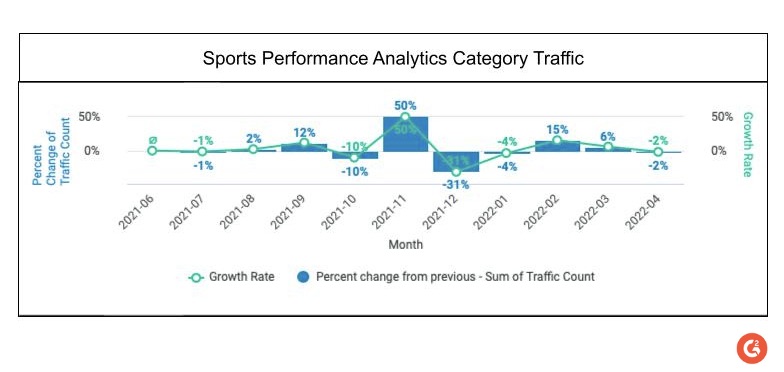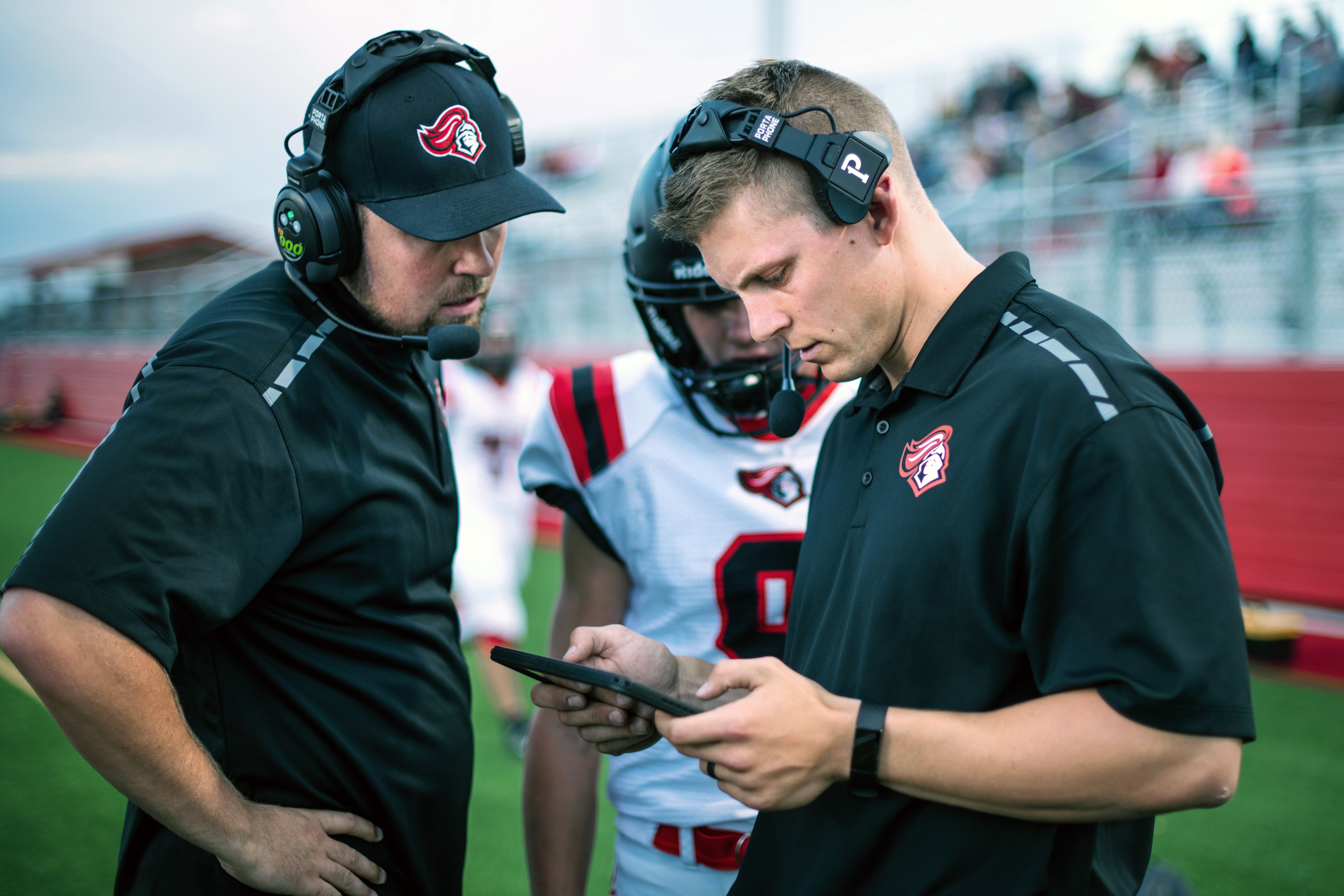Since its creation, artificial intelligence (AI) has revolutionized technology to improve efficiency and productivity in various industries. Some industries have been changed entirely because of AI—design, transportation, healthcare, finance, and sports. However, sports technology is often less talked about in the tech world since it is a relatively new concept that has begun to be capitalized on within the recent decade. Nevertheless, AI has changed how coaches, general managers, players, and fans think, talk, and play sports and is set to become the norm in sports organizations and leagues across the world.
The use of AI in sports technology
As referenced in the movie Moneyball, the optimization of the statistical data and analytics of the players and their skills on the Oakland Athletics baseball team gives just a slight insight into the power of integrating sports with technology. Even though that event happened in the early 21st century, technology has evolved astronomically within the past two decades, especially concerning statistical analysis. Now, the use of statistical analysis in sports is synonymous with playing the sport itself. Its combination with AI has made it so that statistics about many aspects of a game, practice, or even recruiting are readily available to help the coach, manager, or player make certain strategic decisions.
AI has found a lot of success in so many aspects of sports play and sports league success. One prominent use of AI in sports revolves around refereeing. In soccer, for instance, the introduction of the video assistant referee (VAR) has revolutionized the way that game-changing decisions are made in terms of penalties, red cards, and free kicks.
- Basketball to replay controversial plays for game violations
- American football for providing a slow-motion view of plays to determine penalties
- Baseball for evaluating whether the ball is hit outside the lines of play or if a batter is safe/out
- Tennis in replaying volleys to check if the ball remained in play on the court
- Cricket in the Umpire Decision Review System (UDRS) to analyze the result of run-outs
Having AI as a backup to the human referee on the court or field has allowed for in-the-moment game-changing calls that can sway the outcome of any game instantaneously.
Another big use of AI in sports is in athletic practice or improvement of performance for players. AI, in conjunction with health hardware wearables, has made it possible for players to assess every skill or asset they may have and provide margins for how to improve. This technology can analyze details about individual players such as their breathing and heart rate, weather or wind effects, how many interactions they have with the ball or object (depending on the sport), hydration rates, leg movements, physical conditions, speed tracking, and more sport-specific data that allows for athletes to improve their performance. This can also help in minimizing injuries or health problems and allow for general managers and recruiters to strategize for their teams based on the skills that certain players can bring.
There are numerous other uses of AI in sports technology that enhance games and how sports leagues are run. How much AI has been integrated into the sports world has affected advertising and marketing, broadcasting, audience experience, and sports betting. In advertising and marketing, AI helps decide how to target certain fan demographics, investigate media consumption behavior, and choose sponsorships and media rights investments that bring in certain attention or revenue.
In terms of broadcasting, AI algorithms can pick out game highlights to show based on players’ actions and fans' emotional responses, determine when to go to commercial break to best grab the audience's attention, and even identify the best camera angles to use when streaming any game. The audience experience has been changed by allowing fans to follow their favorite team or athlete by reviewing their stats and additional insights and enjoy deep match analysis to understand which actions most influenced certain outcomes. Finally, sports betting has blown up to be a massive industry, as it has technology that gives gamblers game forecasting capabilities to bet money on certain results and player performance before it even happens in the actual game.
Sports and AI technology on G2
Currently, on G2, there are six categories of sports software focused on Athletic Competition Management, Sports League Management, Sports Marketing Intelligence, and Sports Performance Analytics. The two categories that have the closest link to the integration with AI would most likely be the Sports Marketing Intelligence and Sports Performance Analytics categories. Most of the products included in these categories have some form of AI that enables different focuses of statistical analysis for the sport or league using the software.
Based on the data collected from traffic and percentage change by category below, it is evident that buyers have steadily become more interested in sports performance analytics software. The Sports Performance Analytics category is seeing a steady rise in traffic, with an unexplained spike in interest in November of 2021. Although, since it is currently only early May, the data is not yet finalized to see if the trend will continue upwards or have a decrease in traffic for 2022. There may have been a spike of interest in performance analytics for sports because of the significant part AI has in making the software products more efficient. 
As mentioned previously, sports performance analytics software, in particular, serves a large purpose in improving performance for players to assess every skill or physical asset they have and give margins for how to improve each one. Considering its usefulness in aiding champions, having this technology has become necessary for various athletes and teams worldwide. This explains why more buyers are interested in purchasing this software to improve their own team's performance and win more games.
The future of AI in sports
The future of sports is rooted in having AI be an integral part of it. As AI continues to increase competition levels in the present by creating better algorithms, there will be even more detailed predictions of the outcomes of games.
Matthew Miller, a senior market research analyst at G2, focused on AI software, notes that sports is particularly ripe for being data-driven, with every throw, pass, and kick being a data point that can be mined and measured in order to improve the game and improve the business around it.
AI will only become more relevant in sports-related advertisements, broadcasting, coaching, practicing, refereeing, and sports betting as time moves forward. With the powerful asset that AI is, it is no surprise that the sports industry will continue to boom financially. Leagues, teams, and players can only keep improving their efficiency and abilities, all hoping to allow the love of competition to propel forward champions.
Quer aprender mais sobre Software de Gestão de Ligas Esportivas? Explore os produtos de Gestão de Liga Esportiva.

Marina Schlosser
Marina is an Associate Market Research Analyst at G2. She is fascinated by the world of technology, how it affects people on the day to day, and how it continues to influence our future. Prior to joining G2, Marina worked as an AmeriCorps volunteer as a Community Partnership Coordinator at an elementary school in Philadelphia. In her free time, Marina enjoys traveling, playing volleyball, painting, watching sports, hiking, binging a lot of tv and movies, and taking on whatever adventure or challenge comes her way.
